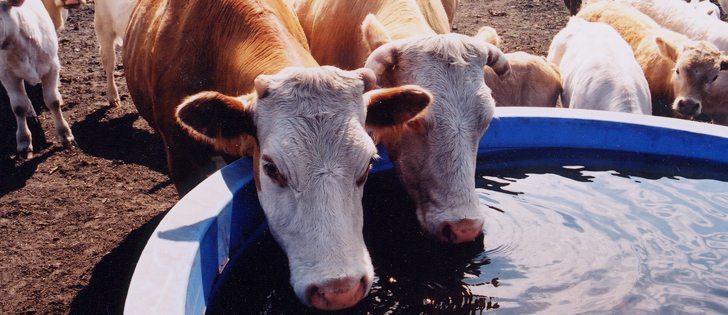JBS takes over | Company official says Brooks, Alta., plant is outperforming others in the industry
BANFF, Alta. — A new management style has arrived at the former XL Foods Lakeside beef plant in Brooks, Alta., since JBS took over last fall.
The multinational company introduced new technology, staff training and upgraded food safety procedures to make Lakeside Packers the best performing plant in the JBS chain, said Bill Rupp, president of the JBS beef division.
The plant was closed last year because of E. coli 0157:H7 contamination and Canada’s largest ever beef recall. JBS sent cattle to the United States for bacterial testing to see if there was a difference between Canadian and American cattle from a microbiological standpoint.
Read Also

Canadian Food Inspection Agency slammed for handling of bovine tuberculosis case
The federal government leans heavily on producers to “take one for the team” and risk their livelihoods without any reassurance of support.
“If anything, they outperformed the control group we compared them to in the U.S.,” he told the Alberta Beef Industry Conference held in Banff Feb. 20-22.
“Since October, it has been our best performing plant from a food safety standpoint,” he said.
“We have done tens of thousands of tests for E. coli in that plant since we started it up in late October and we have literally seen a handful of positive results where we have had to take that meat out of the market and send it to a cooker,” he said.
“We believe this plant is going to do very good things for JBS and the Canadian industry going forward.”
Besides taking a new approach to food safety, the plant will also be melded into a global sales program to move beef across Canada, the United States and internationally.
It has been cleared for export sales, with the most recent shipments sent to Mexico.
JBS-USA is based in Greely, Colorado, where pricing decisions are made daily on information from around the world.
“We believe our best competencies is our international presence,” Rupp said.
The company started as a family-run business in Brazil more than 50 years ago and eventually developed international markets and a network of sales offices around the world.
The company can process 40,000 head of cattle per day and supplies a number of branded beef programs.
JBS believes working closely with food service and retailers is a way to promote brands and build customer loyalty, even as North America faces five consecutive years of declining cattle supplies and flat consumer incomes.
Rupp said the relationships within the beef industry are often acrimonious, but it is time to realize pork and poultry are the real competitors by being cheaper and plentiful.
“As long as we have those views, it is going to very difficult for us to continue against the other proteins and have an overall business strategy that really targets the consumer and really understands what the consumer wants,” he said.
Wholesale beef prices are soaring, and Rupp said retailers’ ability to pass along higher prices is one of the great challenges of this year.
Retail beef prices are record high and struggle against pork and chicken. Beef averaged $4.77 per pound and chicken was $1.86 last year, said market analyst Steve Kay.
Ground beef accounts for more than half of all beef sales and usually retails at $1.99 per lb. It is now $2.49- $2.99 per lb.
These record prices are coming at a time of 25 to 30 percent overcapacity in feedlots and packers in North America, which is a signal that it is time to make big changes or go out of business.
Some facilities are likely to close by the end of this year.
“These packing plants are $300 million assets and it is not easy to put the padlock on the gate and walk away,” Rupp said.
“There are going to be some more tough things happen in our market.”
















